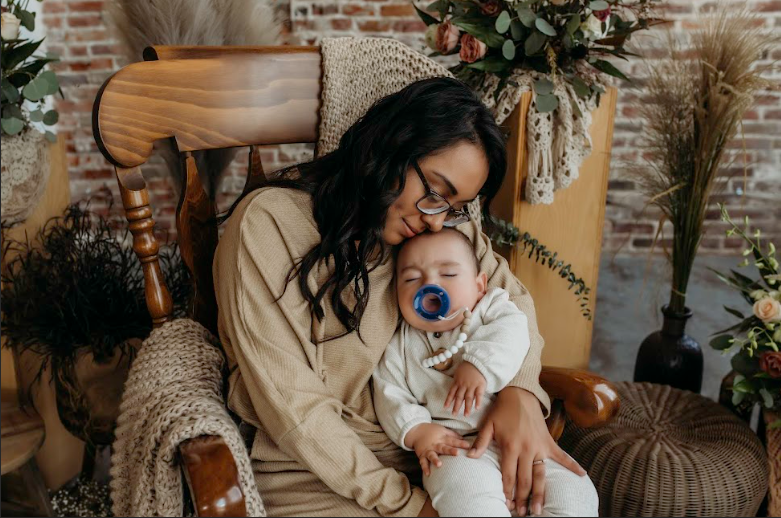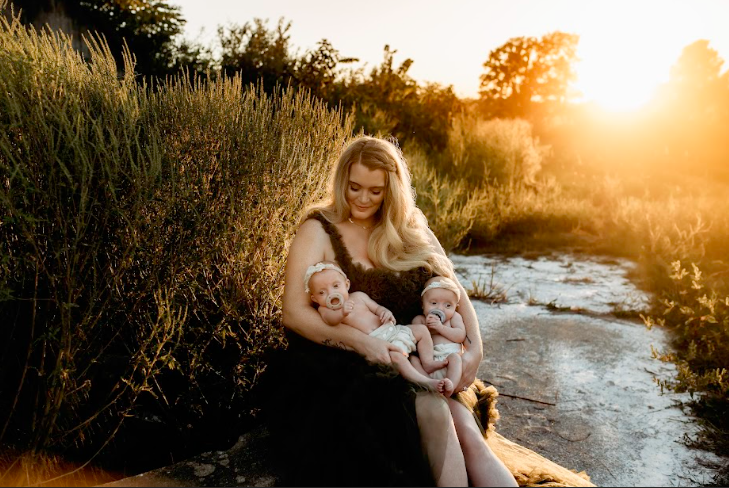
As any new mama will tell you, caring for a newborn is no small undertaking.
Between feedings and diaper changes and those first few doctor visits, it’s a labor of love that requires loads of time and energy.
And if you’ve also got older kids, you may be feeling even more overwhelmed!
For starters, older children still need your love and guidance. They still depend on you for help with getting off to school, completing their homework and lots of TLC when the occasional stomach bug hits.
Kids also go through a range of natural emotions when a new sibling arrives. On the one hand, they get excited about seeing the baby and even helping with infant care. But they may also feel excluded and even jealous of their new brother or sister taking so much of mama’s time and attention.
Look, as the proud mamas of three adorable kids each, we get it! When it comes to juggling the needs of a growing family, the struggle is real. But rest assured, you can do this. And we promise, you’re not alone!
There are lots of ways to help older kids adjust emotionally to having a new sibling, and make sure they still get the time and attention they need from you.
Preparing Kids for a New Sibling
One of the biggest questions mamas have is when to tell older kids about your pregnancy!
The answer depends on their age and ability to understand the concept of adding a new member to the family.
At an age-appropriate level, explain ahead of time that caring for the new baby is a big job. That means mama will have to spend lots of time feeding, bathing, changing diapers and other important tasks. You can also tell your child that you’ll need lots of rest yourself after having the baby.
Reassure your kids that you still love them and will still be there when they need you. Discreetly encourage family and friends to pick up a little something for your older child if they are buying gifts for the new baby.
Here are some good ways to prepare older kids to welcome their little brother or sister.
Kids Under 2
Toddlers and older infants are still too young to understand the concept of having a baby. This is a good time to start teaching words like baby, infant, brother or sister. Read storybooks that feature siblings as characters.
Once the new baby arrives, make a point to spend quality time with your older child. A great time for this is when the newborn is napping or in the care of another adult, such as a spouse, partner or grandparent.
Preschoolers Age 2-4
Wait until somewhat close to your due date to tell your preschooler about their new family member. If you tell them too soon they may get anxious about why the baby hasn’t come yet! Show your child his or her own baby pictures, and let them help you pick out clothes and toys for the new baby.
Kids this age may have more trouble “sharing” mama with a new brother or sister. Don’t be surprised if your preschooler “regresses” to infant-like habits like drinking from a bottle, using a pacifier or bathroom accidents after toilet training. Be patient and offer lots of praise when your child returns to more “grown-up” behavior. When the baby is napping or with another adult, use that time to read, play games or just have a good talk with your older child.
School Children Age 5 and Up
School-aged kids will have a better understanding of what it means when mama is pregnant. Explain what is happening and what to expect when the baby comes at an age-appropriate level. Encourage your child to ask questions and share their feelings with you.
Let older kids help with picking out baby items. Invite them to come to the hospital to meet their new sibling so they feel included in the happy occasion. Depending on their skill and maturity level, older kids may be able to help with some infant care tasks, such as feeding, bathing and diaper changes. Your older child can also bond with their brother or sister by reading storybooks, singing lullabies and sharing toys.
Just like with toddlers and preschoolers, your school-aged child still needs you. Take an interest in what they’re learning at school and offer help with homework. Encourage them to continue extracurricular activities, such as music lessons or sports. Showing up to their recitals, games and team picnics will reassure them that they are still important to you.
How the Ninni Pacifier Can Help
It’s also perfectly normal to worry if your new baby is okay while you’re spending time with their older siblings.
As we noted earlier, one helpful strategy is to spend time with your older kids while the baby is napping. Spouses, partners, grandparents and other relatives who live close by can also lend a hand while spending quality time with their newest family member.
A quality pacifier is a great way to help your baby self-soothe and get to sleep while you tend to your other children or take care of your own needs. The soft, breast-like Ninni pacifier does a great job of comforting baby, especially after feeding. The Ninni is designed for healthy tongue and lip movements, which helps baby relax and sleep peacefully when it’s time for a nap.
Offer the Ninni right after breast or bottle feeding when baby is satisfied. You may combine the pacifier with other soothing techniques like rocking or gently walking around.
Bring the pacifier along when you’re away from home, as it keeps baby calm while riding in the car or using the stroller for a walk in the park. It also helps when baby is waiting for the next feeding or for comfort from mama or daddy.
Choosing the right soother is just one more way to provide comfort for your newborn while still meeting the needs of all your kids. And as you prepare to welcome the newest member of your family, rest assured mama, you’ve got this!
Bottle or breast, Ninni Co. is best.


